When Noah Webster released his dictionary, he described it as a 'dictionary of the
American language'. The name choice was not incidental. It was very much a political statement. The idea that the USA and the UK (and other Commonwealth countries) are 'divided by a common language' is not only a huge exaggeration but is also decreasingly, not increasingly, true with time. One distinction that still exists, however, is spelling. To put it a slightly chauvanistic way, Americans still cling on tenaciously to Noah Webster's misspellings...
| 1. | CHEQUE: 'Check' means 'look', as in 'check out that babe over there'. It's also a symbol, a/k/a a 'tick', that teachers give you when you've answered correctly. It's also what happens when you're one turn away from winning in chess. It's not, though, a piece of paper that takes the place of money. That one might be pronounced the same, but it's spelt with a 'que' at the end. | 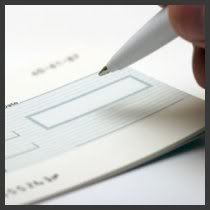 |
|
| 2. | COLOUR: Quite famous, this one. There are plenty of words ending in -our (parlour, flavour, labour and honour pop immediately to mind), and for no clear reason Noah Webster decided to excise the 'u' from each. Today, Americans tend to use the 'u' in the word 'saviour' for no other reason I can think of than because Jesus is special enough to warrant an extra letter. |  |
|
| 3. | GREY: Poor, poor colours. You know, you can take the simple sentence 'my favourite colour is grey', and have to completely change it to translate it to American. Why this perfectly spellable word got altered, I have no idea. | 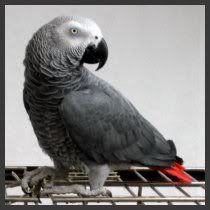 |
|
| 4. | MOUSTACHE: What is wrong with an 'o' followed by a 'u'? Why do Americans have to run around removing one of the two, and why is there no consistency? It's not like eliminating the 'o' here suddenly makes the word phonetic: that second syllable is still all over the place. By definition ornamental facial hair might as well have an ornamental spelling, right? | 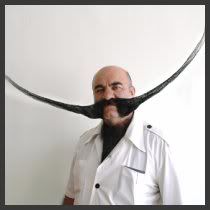 |
|
| 5. | JEWELLERY: Some words are just functional, some are ornamental. If you're talking about a word that is used to describe something ornamental, why give it a functional spelling, right? that 'le' in the middle is like a little intricate beadwork or a gemstone, added to the design to give it some richness. And beauty. After all, that's what we want from jewellery, isn't it? | 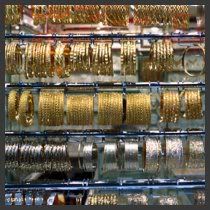 |
|
| 6. | AXE: And they've taken one to this word, too, rather mercilessly. The poor word only had three letters to begin with. Why be so cruel as to hack one off? The Scrabble player in me thanks you, America, but still 'ax' is such a pathetic, mutitlated word. It makes me sad. |  |
|
| 7. | CATALOGUE: I couldn't actually believe this one when I first saw it (and neither can many Americans evidently, since it's not universal). I understand the fatwa against unnecessary French letters, but is it not plainly obvious that 'catalog', 'monolog', 'demagog' etc. are just ugly? | 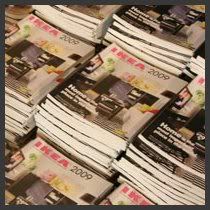 |
|
| 8. | MANOEUVRE: This one seems like Webster, or someone else, just couldn't navigate the correct spelling, made a mistake, and then brushed it off by saying, 'I've spelt this correctly - it's just the American spelling'. I mean, I get it. The correct spelling is tough. But 'maneuver'? Just silly. |  |
|
| 9. | YOGOURT: This word's just silly, really. The Brits spell it one way, the Americans another... the Canadians, bored of choosing, just go for the French spelling in an act of national solidarity, saving dairy producers the indignity of spelling it differently on either side of the container (even in French, there are different spellings, with 'yaourt' also out there). The American spelling, shorter like always, is a bit silly: 'yogurt'. But I think the British spelling, with its pointless 'h', surpasses it for ugliness. |  |
|
| 10. | BARBECUE: A personal pet peeve of mine. This is not really an American/everywhere else thing, actually. It's just a creeping, invasive mistake. It's not that tough to see where it comes from: the last two syllables sound like letters, leading to "Bar-B-Q" and, rather more uselessly, "BBQ" as short forms. Some people then presumably took it that each of those letters stood for a syllable, and thus was the first letter of the syllable in question: Bar, Be and Que. But 'barbeque' is not merely a mistake, it's a spit in the face of French spelling. Should we pronounce it 'bar-beck'? | 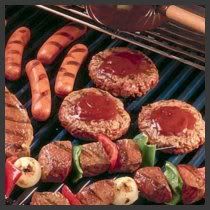 |
|











We spell ‘barbecue’ exactly like you do. We only say ‘BBQ’ because ‘cue’ sounds like ‘Q’ not because we spell it as ‘barbeque’. Most words spelt with a Q are pronounced here as it it were a K or a “hard” C.
ReplyDeleteDid you know that that you can make money by locking special sections of your blog or site?
ReplyDeleteSimply open an account on Mgcash and add their content locking tool.